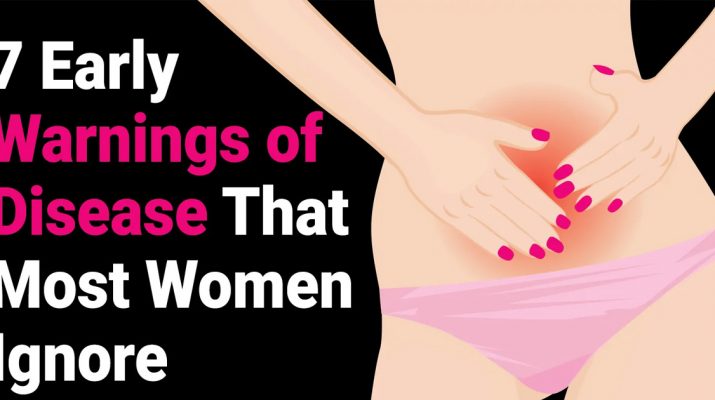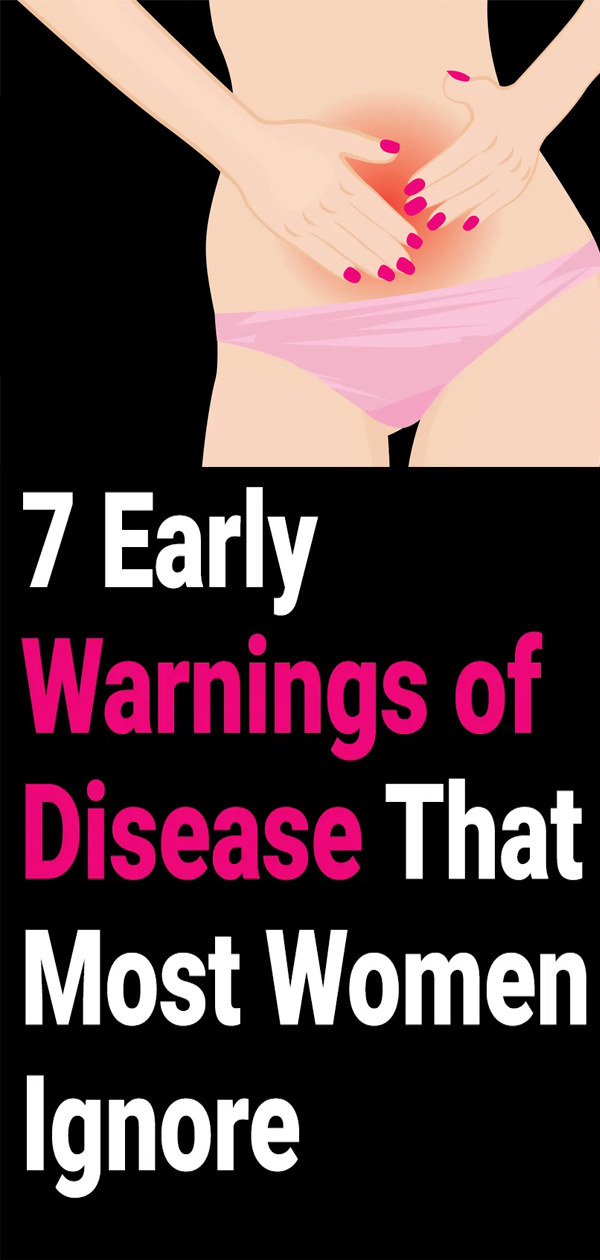Engrained in every human being is the ability to adapt to one’s environment. This environment can be internal – our thoughts, feelings, physical condition, etc. Or it can be external – people, places, things, and so on. We’ve developed this incredible gift for one reason and one reason only: survival.
But there are times when this ingenious survival mechanism can bite us in the proverbial rear. One example is when we, consciously or unconsciously, look past signs that the body is trying to signal for our own good. We sort of passively accept something’s up and decide to do nothing about it. In the worst-case scenario, these symptoms can be signs of disease.
Today, we’re going to focus on seven warning signs of disease that most women ignore. For clarification, we’ll talk about what each sign could mean, along with how to identify if there’s a possible health issue.
Let’s do this thing!
7 Warning Signs Of Disease Most Women Ignore
“We must claim our bodies as our own to love and honor in their infinite shapes and sizes. Fat, think, soft, hard, puckered, smooth, our bodies are our homes.” – Abra Fortune
1. Too Frequent Urination
What it could mean: Having to go pee all of the time could signal a kidney or urinary problem, including urinary tract infection (UTI). It could also be a possible sign of a bacterial or hormonal imbalance.
How to identify it: Urologists, who are doctors that specialize in disorders of the urinary tract, consider having to urinate more than eight times over a 24-hour period abnormal. Of course, consider your daily fluid intake.
2. Heavier Periods
What it could mean: The reason for an abnormally heavy period could be as harmless as a bit too much exercise or a change in the weather. Unfortunately, it could also be a sign of disease or some other health disorder, including issues with the uterus or thyroid.
How to identify it: A heavy period (menorrhagia) is defined as a period that lasts longer than seven days. Heavier-than-usual bleeding accompanied by menstrual cramps is another sign, as is the presence of clots on the tampon or pad.
3. Unusual Excretions
What it could mean: While no one likes to talk about their, ahem, “bodily excretions,” it is at times necessary to safeguard health. There are many possible causes, among them a disorder of the bowel, such as infection, or some inflammatory condition, including inflammatory bowel disorder (IBD). While such severe conditions stemming from this symptom are rare, they do occur.
How to identify it: If your excretions are abnormally foul-smelling or appear greenish in coloration, it may be wise to seek the advice of your healthcare professional.
4. Changes Of The Breasts
What it could mean: Any pain or physical alteration of the breast that is not explainable by menstrual cycling or physical injury is nothing to speculate about. One shouldn’t overreact, but breast cancer is relatively common, and any abnormalisties warrant an examination by a qualified professional.
How to identify it: Swelling, irritation, dimpling, breast or nipple pain, redness or thickening of the breast or nipple, and discharge are possible signs of disease.
5. Post-Menopausal Bleeding
What it could mean: Bleeding after menopause isn’t normal and should be evaluated. While the spotting or bleeding may be completely harmless, it could also be the result of something serious. Per the Mayo Clinic, post-menopausal bleeding could be signs of cancer, infection, or trauma.
How to identify it: As mentioned, normal periods last up to seven days. Recurrently bleeding past this timeframe is a probable sign that something is amiss.
6. Sudden Weight Loss
What it could mean: A bunch of things. Sudden weight loss can result from bowel diseases, depression, gastroenteritis, bacterial infection, thyroid disorder, and even cancer.
How to identify a possible health issue: “Unexplained weight loss” is considered anything over 10 pounds (4.5 kg) or five percent of your body weight over a six- to 12-month timeframe. Also, pay attention to what others say about your appearance; or if your loved ones express concern.
7. Hair Growth In “Non-Hair” Places
What it could mean: More than likely, a hormonal imbalance. The hormones androgen and testosterone can cause the sudden growth of facial hair, for example. If left unchecked, a simple hormonal imbalance – something rather harmless with the right treatment– can manifest into a metabolic disorder, infertility, and even an increased risk of cancer.
How to identify a possible health issue: If you’re female, you likely pay close attention to your body. If you see a sudden growth of hair around the face, shoulders, arms, back, or legs, it’s a good idea to check in with your healthcare professional.


